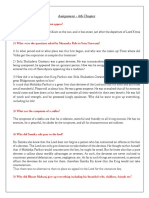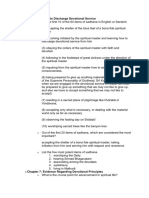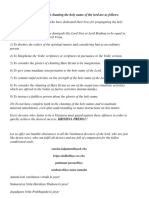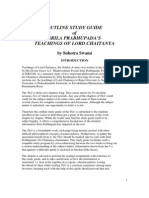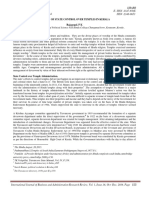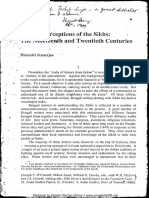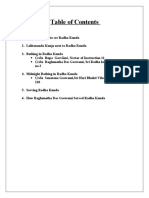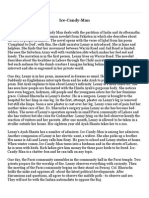0% found this document useful (0 votes)
107 views13 pagesCba - Unit - 15
1. The document discusses a chapter from the Srimad Bhagavatam about the daughters of Manu and Daksha's sacrifice where Lord Shiva was not invited.
2. It provides explanations of various terms and concepts from the chapter, such as the meaning of putrika-dharma and why Manu behaved extraordinarily.
3. Key events summarized include Daksha becoming angry at Lord Shiva for not showing respect, Daksha cursing Lord Shiva, and Satī deciding to participate in Daksha's sacrifice despite Shiva's warnings.
Uploaded by
JJD BVKSCopyright
© © All Rights Reserved
We take content rights seriously. If you suspect this is your content, claim it here.
Available Formats
Download as DOCX, PDF, TXT or read online on Scribd
0% found this document useful (0 votes)
107 views13 pagesCba - Unit - 15
1. The document discusses a chapter from the Srimad Bhagavatam about the daughters of Manu and Daksha's sacrifice where Lord Shiva was not invited.
2. It provides explanations of various terms and concepts from the chapter, such as the meaning of putrika-dharma and why Manu behaved extraordinarily.
3. Key events summarized include Daksha becoming angry at Lord Shiva for not showing respect, Daksha cursing Lord Shiva, and Satī deciding to participate in Daksha's sacrifice despite Shiva's warnings.
Uploaded by
JJD BVKSCopyright
© © All Rights Reserved
We take content rights seriously. If you suspect this is your content, claim it here.
Available Formats
Download as DOCX, PDF, TXT or read online on Scribd
/ 13

